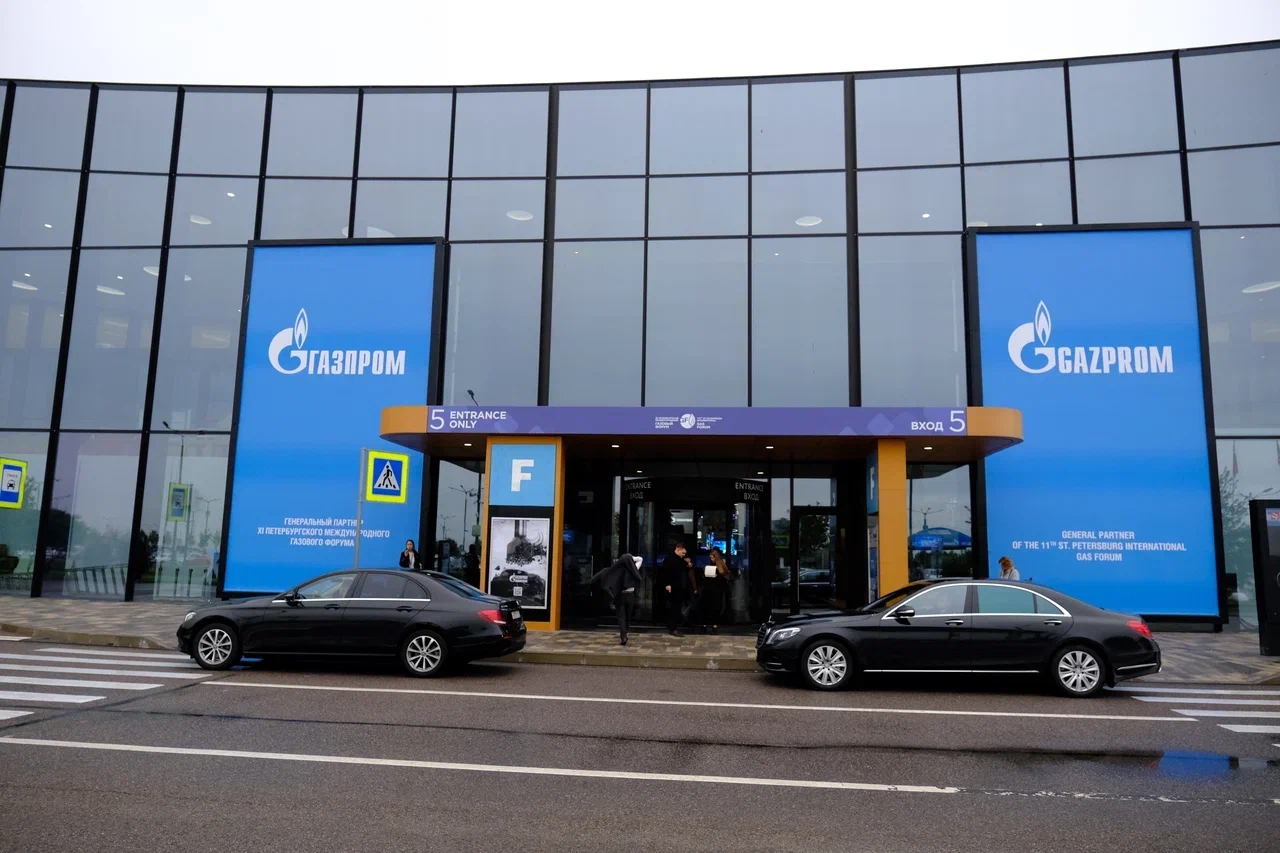The turn to the East and new technologies became the main topics of the first day of the SPIGF-2022
The first day of the XI St. Petersburg International Gas Forum has ended. During 25 conferences, round tables, seminars and discussions, the forum participants and delegates shared their experience in the crisis, predicted the development of the global gas market, discussed new technologies and solutions.
Despite unprecedented sanctions, oil production in Russia increased by 3% within 8 months of 2022. This result was achieved due to the fact that Russian oil companies quickly reoriented the export direction from West to East with the help of discounts for new buyers, Dmitry Pigarev, Deputy Head of the Gazprombank Economic Forecasting Centre, said during the conference "Solutions of the Gazprombank Group for Oil and Gas Industry Suppliers and Contractors". At the same time, the gas industry recorded a decrease in production by 9%, which, according to analysts, is compensated in the short term by "very high prices". According to Dmitry Pigarev, "the lost volumes of exports to the EU countries" in the coming years may be replaced by supplies to the East.
The prospects for the use of liquefied gases were also discussed by the participants of the round table "The role and place of liquefied gases in the implementation of the socially oriented gasification program of the Russian Federation". According to the speakers, liquefied gases (both natural – LNG and hydrocarbon) can become the basis for the so-called alternative social gasification, providing gas to the population living in sparsely populated and/or hard-to-reach regions. Today, the priority type of fuel for alternative gasification is liquefied natural gas, Nikolai Sidonsky, CEO of Gazprom Promgaz stated. The transition to this type of fuel is relevant not only for the ambassadors of alternative gasification: the regions of the Far Eastern Federal District, but, as it turned out, also for the Moscow Region. Thus, Mosoblgaz, which is responsible for gasification of the densely populated Moscow region, is considering the possibility of transferring 37 thousand households located in remote or small villages to LNG. According to the calculations of the company's CEO Igor Baranov, as a result, the volume of liquefied gas consumption in the region may amount to about 750 thousand sq. Meters per year.
Meanwhile, the vice-president of the Russian Gas Society, Yuri Vazhenin, noted that in the current situation it is quite reasonable to return to the consideration of alternative gasification and with the use of LPG. "Now the prices for liquefied petroleum gas are declining due to its overproduction, as the traditional consumers of LPG, Poland and Ukraine, for obvious reasons refused Russian supplies," explained Yuri Vazhenin. In his opinion, for the development of alternative LPG gasification, it would be possible to "return the state order for liquefied propane and butane that existed in the USSR in the amount of 5% of production volumes", which would provide a sufficient amount of this type of fuel for consumers.
Another important topic that was discussed on September 14 on the sidelines of the Forum was the prospects for the introduction of domestic technologies in the fuel and energy sector. The need to accelerate these processes is obvious, but there are also difficulties. They are related to the forecasting of needs and the lack of scaling specialists, the participants of the session "New technological vectors in the processing of oil and gases into basic petrochemical products and raw materials for the next processing" noted. "For commercialization, it is important to understand very precisely at the stage of the idea's appearance in which niche it will be applicable. This is difficult, because, firstly, R&D can take from 2 to 5 years, and during this time the idea can "turn sour". Secondly, today companies are focused on replacing technologies that are not yet available, and there is no information about what planning horizon we can talk about," summed up Alexey Rodikov, Deputy General Director for Engineering and Commercialization of LLC Gazpromneft – Industrial Innovations. Among the technologies needed by oil and gas companies, the participants of the discussion particularly noted those that allow obtaining petrochemicals and biotechnology products from the extracted hydrocarbons.
The event participants of the first day of the SPIGF-2022 were particularly interested in the experience of implementing the project of modernization of processing plants of OOO Gazprom Pererabotka in the Nadym-Pur-Taz region, which it shared during the scientific and practical conference "Gas Processing and Gas Chemistry: Growth Points". Modernization has allowed to create 717 new jobs, increase revenue from services for transportation and processing of hydrocarbons by 14 billion rubles, minimize CO₂ emissions, as well as switch to domestic software.
Despite all the difficulties that the Russian oil and gas complex is facing today, it will be able to maintain its leading role on the world stage in the future. The participants of the conference "Social responsibility of the oil and Gas business: energy transition, ecology, communication of generations" were unanimous on this issue. The energy transition, that is, the maximum rejection of traditional fuels in favour of alternative ones, for which the European community is so advocating, will not weaken Russia's position on the global hydrocarbon market. Traditional energy carriers are still required by both Europe and developing countries, so Russia should invest in increasing hydrocarbon production, said Alexey Kontorovich, scientific director of A.A. Trofimuk Institute of Petroleum Geology and Geophysics of the SB RAS. And Victoria Fedorova, a senior lecturer at I.M. Gubkin Russian State University of Oil and Gas (NIU), recalled that historically "with all energy transitions, the consumption of "old" energy sources has not been reduced”. "Accordingly, the introduction of renewable energy sources will not lead to a reduction in oil and gas consumption," summed up Victoria Fedorova.
In addition to interesting discussions, several landmark agreements on cooperation in the field of new technologies were signed during the first day of the Gas Forum.

 Calendar
Calendar
 Online application
Online application
 Map
Map
 How to get
How to get



